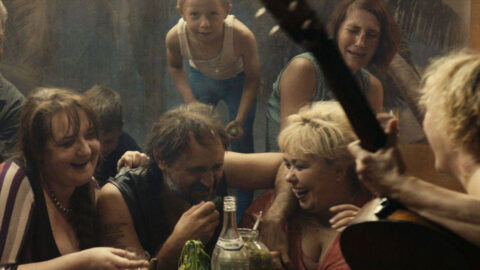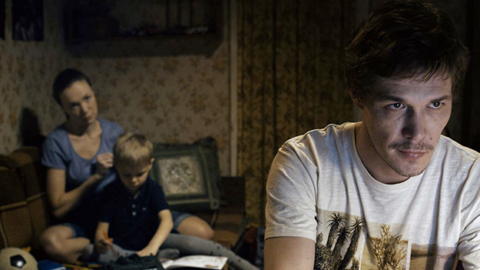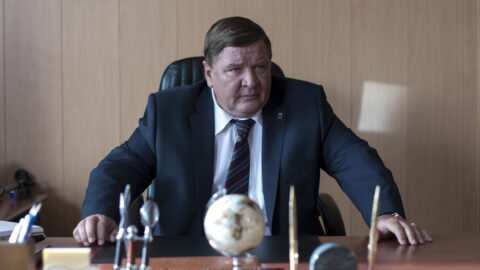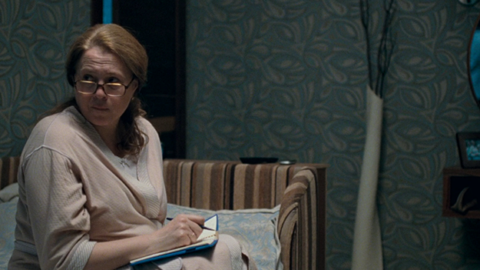By Eric Hynes in the January-February 2018 Issue
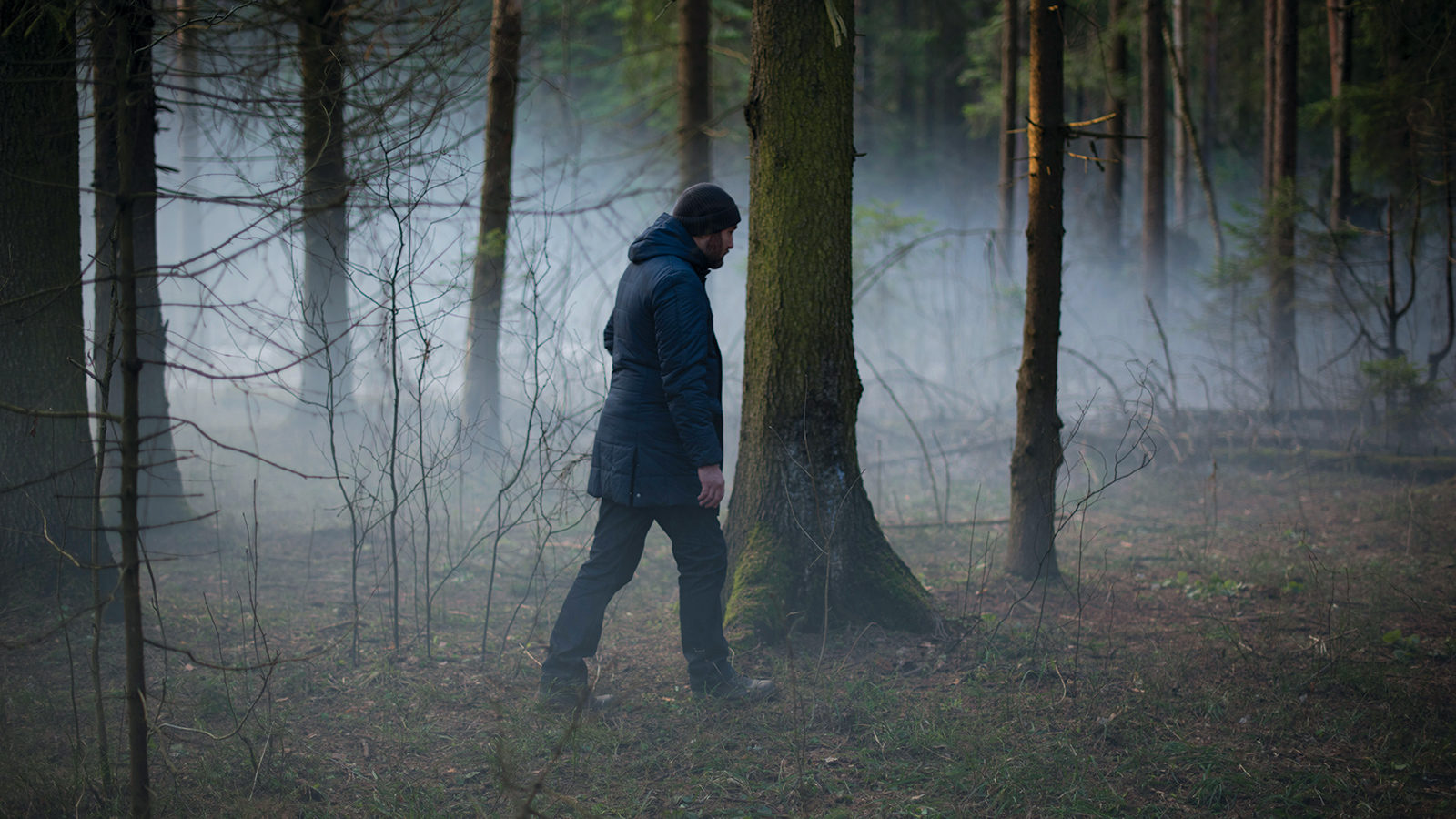
Review: Loveless
(Andrey Zvyagintsev, Country/Distributor: Russia, Sony Pictures Classics, Opening February 16)
Few living filmmakers put as much care and intentionality into their storytelling craft as the emergent Russian master Andrey Zvyagintsev. In five features over 15 years, his has been a cinema of significant shots and committed cuts, each choice weighed and weighted, every detail freighted with meaning. Such determination risks stultification, but even that notion’s been worked over and woven into Zvyagintsev’s project, in which even the most willful of people come to suspect that a course has already been set, that there’s a frame around their lives, and it’s a heavy one.
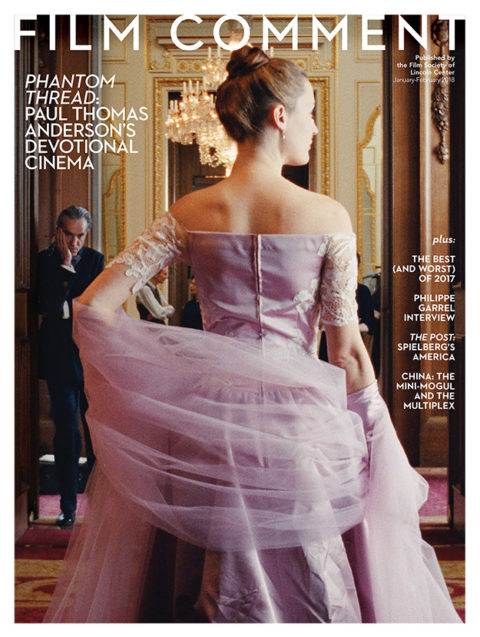
From the January-February 2018 Issue
Also in this issue
The camera in Loveless doesn’t just invisibly serve character and story, it functions as its own narrative device—the omniscient eye. This is established through an opening montage of an unpopulated wintry wooded landscape (Zvyagintsev began his last film, 2014’s Leviathan, in a similar way), in which the camera betrays curiosity and motivation—zooming into the split of a tree, panning skyward from the foot of it. Before we know anything about anyone, the camera has established an independence of movement, and gestured toward an ethic of not just showing, but of looking. Cut to a courtyard where students are getting out of school, observed wide and from afar before we suddenly track on young Alyosha (Matvey Novikov), who walks us right back into those woods, except it’s now autumn (or perhaps it was). He’s alone, but the camera has presence here, and will have everywhere else going forward.
We see Alyosha but his parents do not—at first just figuratively. He’s a hot potato passed between two people divorcing, the regretted produce of a failed relationship and a logistical hindrance for starting over with new partners. We come upon Zhenya (a gloweringly statuesque Maryana Spivak) and Boris (a sulking Aleksey Rozin) at peak petty selfishness, regressing into gargoyles of bourgeois vapidity, feebly lit by their iPhones and regarding inhabited space as real estate. Over the course of one cross-cut evening, we learn that Zhenya is an aggrieved princess, impatient to be doted upon by her older, richer boyfriend, while Boris is fleeing Zhenya’s icy scrutiny in favor of the flush warmth of a pregnant younger girlfriend. Zvyagintsev front-loads these unflattering details, listing proceedings toward a satire of rudderless Russian modernity, at the expense, it seems, of distinct characterization.
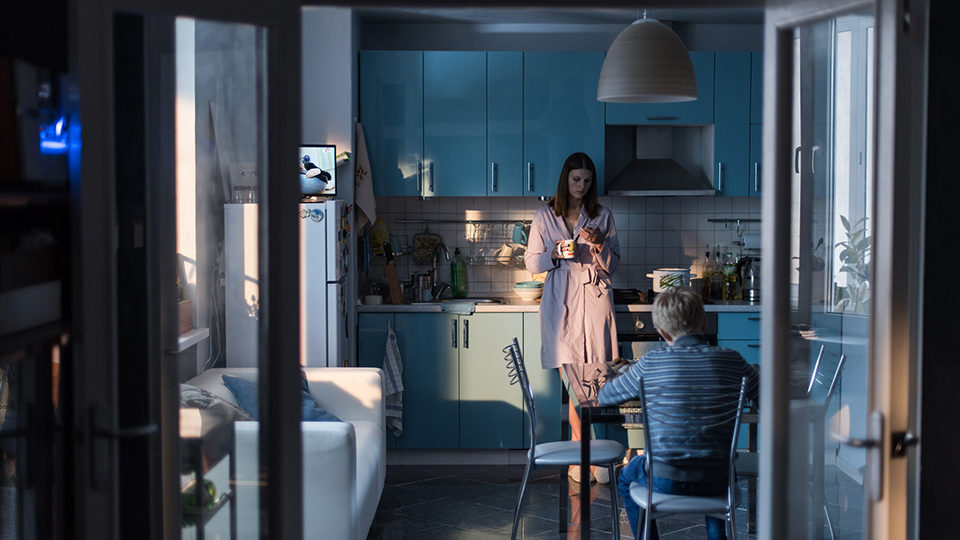
But right as we’re ready to never spend another moment with either of them—simultaneous with their resolve to never spend another moment together—the ignored Alyosha actually vanishes, taking their illusions of autonomy and renewal with him. Scrutinized and chastened by swarms of searchers more concerned with their son’s whereabouts than they are, they can’t help but face their complicity and vacuity, their self-regard curdling into self-hatred, which is nearly the same thing. They don’t necessarily grow, and certainly don’t stop attacking each other, but a light has switched on inside, revealing an abyss.
That such depth arrives thanks to their son’s departure, and dashes their dreams of a lossless future, might be viewed as punitively ironic. Yet that’s not how it plays, and not how the camera leads us to view them, or anyone. We’re invited to see these broken humans, but also to see as them. While measured and premeditated, this shifting vantage is never above what it sees. In fact the most crucial images are either captured from the ground up, trees spinning against the sky, or left in rooms and cars recently abandoned, attentive to the sudden quiet and pushing through windows for a closer look. No one and nothing is redeemed, but we can try to see it all for what it is.
Eric Hynes is a journalist and critic, and associate film curator at Museum of the Moving Image in New York.



